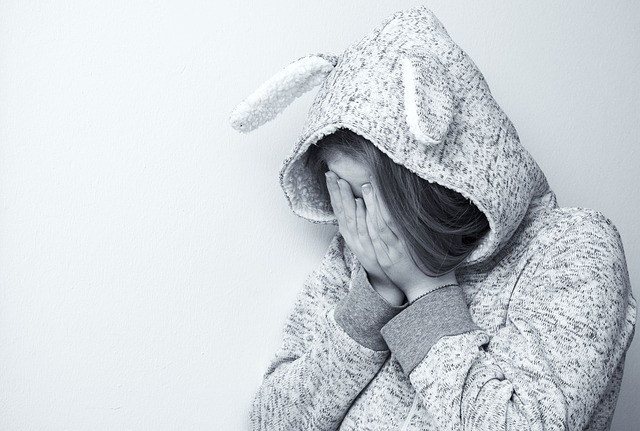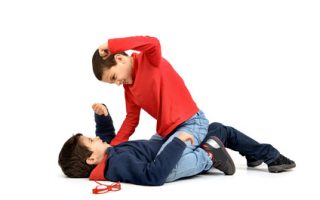Signs of mental health problems in a child
Many early signs and symptoms of mental health conditions in children are related to inadequate ways of coping with their emotions. So a concerned parent may see one or more of these symptoms recurrently:
- Confusion about emotions
- Sudden mood swings
- Aggression
- Irritability
- Intense emotions
- Withdrawal
- Lack of concentration
- Isolation
- Obsessive behaviour
- Changes in body weight
- Social problems
These are just a few of the symptoms of early mental health problems, each child experiences them differently and there may be a combination of other external signs, such as lack of self-care, loss of appetite, lack of engagement in social activities or learning.
A child’s social and emotional development
At a young age mental health problems are interlinked with a child’s social and emotional development. This is to do with the way we socially and emotionally develop: the first of the five stages is a person’s “Sense of I”. Your “Sense of I” is based on the self-value we learned as babies, the way we learned that our needs would be met and we were entertained taught us that we are a person that deserves these basics. This develops over time to form our sense of self-identity and is fundamental to our ability to handle life, our emotions and the people around us. Children progress through their social and emotional development at a different rate than their body; it is not unheard of for a child to be physically 7 or 8, but socially at the stage seen with 2 or 3 year olds.
As a child approaches the age of 7or 8 (middle childhood), their external monologue that has accompanied their play and actions disappears as it internalises. This then develops into a dialogue that becomes their conscious. For emotionally immature or unprepared children this can be perceived as voices in their head.
When we as adults feel threatened or insecure, it is because something has worried our “Sense of I”. For example we may have witnessed an act of violence, we could have been burgled; but even things like a stressful day, being challenged or an argument with a relative or close friend, can threaten our internal self. For most of us, we know that by spending time relaxing, having fun or on ourselves that we are okay and we re-establish our sense of security and trust in ourselves.
Causes of low level mental health problems in children
For children, some early onset symptoms of mental health conditions are related to a mistrust or wounded “Sense of I”. An example of this is some anxiety disorders, where an inaccurate perception of a threat leads to a behavioural or emotional change. Over time if this inaccurate perception of a threat to their “Sense of I” is not addressed, then the responses can develop into mental health conditions, such as obsessive compulsive disorders, agoraphobia, school-based anxiety or a general anxiety disorder.
Depression is another mental health condition seen in children. Whilst there are a number of different forms of depression, there are two main factors to consider. The first is to do with the chemical levels in the brain, known as clinical depression; this is normally treated through drugs to restore the balance of neurotransmitters, interventions like therapy will increase the person’s coping skills and decrease the likelihood of relapse. The second is related to the amount of stress or hormones a person is experiencing and is often treated through therapy or counselling, again in a bid to understand the predisposition and help the individual cope with it. Depression is perfectly normal and is experienced at one time or another by many people without it developing into a longer term mental health concern. It is only when the situation or events in a person’s life are combined with either of these two factors that it then develops into a depressive condition.
Eating disorders are another mental health condition experienced by children. They are normally linked to an obsession or a perception of having an ‘incorrect’ body weight (note the link to the “Sense of I” again). Whilst anorexia is noticeable because of the loss of body weight as the child becomes more obsessed about their body weight and restricts their diet, bulimics may very well maintain their normal body weight as they alternate between binge eating and excreting the food by vomiting or use of laxatives.
Although seen rarely, about a third of adults who experience psychosis (hallucinations) experienced them prior to their 19th birthday. Psychosis can be thought of as an altered perception of the world as the person suffering from it experiences hallucinations and delusions, whilst at the same time losing their self-care, neglecting themselves and loosing motivation for real world life. Psychosis can be caused by schizophrenia (a chronic mental health condition), bipolar disorder, stress, anxiety or depression.
Finally trauma can cause mental health conditions in children. Post-Traumatic Stress Disorder is linked to an event that a person has witnessed, been involved in or experienced where there was a threat to the life of them or others. Complex Developmental Disorder is a condition linked to exposure to sustained or multiple traumatic experiences during childhood which lead to an over-active stress response system all of the time.
When should a child be seen by a mental health professional
Many low-level mental health conditions in children can be supported through helping the child to cope with their emotions and express their thoughts. At a basic level, this does not necessarily require a professional input, just adults who can listen, not judge, be empathetic and give the child the space (without being interrupted) to work through their thoughts. For these children the priority is about feeling heard and understanding how to recognise the emotions they are experiencing.
When a child’s life is being affected on a daily basis by their thoughts, feelings or altered perceptions then it is appropriate to consult a physician. In the event that they are endangering themselves or the lives of others and there is an immediate threat, then emergency services should be called unless a specialist plan has been put in place.
What is the lowest age they should be seen?
It is often not until the age of 7 or 8 that mental health difficulties start to be identified as separate from social or emotional developmental difficulties. Before this point a child very often hasn’t learnt the reflective capabilities to engage fully in conversations about their experience. It is possible for younger children as young as 4 or 5 to access therapeutic interventions that allow them to act out or respond to the emotions they are experiencing, such as play therapy.
Who are the different clinician’s a child might see for help with mental health
There are a number of different professionals who may support a child with mental health problems or the causes of a child’s social and emotional difficulties. Many of these are accessed through your family doctor or they may be able to recommend a professional.
Teachers
As many teachers have daily contact with children, they play a crucial part in providing a consistent experience that provides security for children experiencing difficulties. School staff also play an important listening role in helping the child’s experience feel validated.
Family doctor
Often the first port of call for concerned parents. Whilst not necessarily trained in supporting children’s mental health conditions, they will know how to access local services.
Educational Psychologist
A professional who is able to identify and advice on the support required to help a child engage in learning.
Clinical Psychologist
A professional doctor who is trained to diagnose and support the psychological health of patients.
Forensic psychologist
A psychologist trained to assess and provide interventions for criminal behaviour.
Paediatrician
A doctor who is trained to assess and provide advice on conditions that relate to the growth of a child, such as biological conditions affecting the brain.
Counsellor (school or otherwise)
A person trained to listen and give advice on coping with psychological problems, they help people to talk about their feelings.
Therapist
A professional trained to help heal the causes of the emotional experience or psychological problems someone is experiencing. There are a number of different forms this can take:
- Play
- Music
- Art
- Drama
- Psychotherapy
Social Worker
Social workers will often support children suffering with mental health problems or their families to help organise their environment, social, economic or family to reduce the contributing factors relating to the difficulties.
OT (Occupational Therapist)
Some emotional and social difficulties in children are caused by an inaccurate perception of the senses it experiences, known as Sensory Processing Disorder. This is diagnosed and interventions provided by specialised Occupational Therapists.



